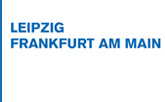Katalog der Deutschen Nationalbibliothek
Ergebnis der Suche nach: "Recife"
|
|
|
| Link zu diesem Datensatz | https://d-nb.info/1334840490 |
| Art des Inhalts | Konferenzschrift |
| Titel | Artificial Intelligence in Education : 25th International Conference, AIED 2024, Recife, Brazil, July 8–12, 2024, Proceedings, Part I / edited by Andrew M. Olney, Irene-Angelica Chounta, Zitao Liu, Olga C. Santos, Ig Ibert Bittencourt |
| Person(en) |
Olney, Andrew M. (Herausgeber) Chounta, Irene-Angelica (Herausgeber) Liu, Zitao (Herausgeber) Santos, Olga C. (Herausgeber) Bittencourt, Ig Ibert (Herausgeber) |
| Organisation(en) | SpringerLink (Online service) (Sonstige) |
| Ausgabe | 1st ed. 2024 |
| Verlag | Cham : Springer Nature Switzerland, Imprint: Springer |
| Zeitliche Einordnung | Erscheinungsdatum: 2024 |
| Umfang/Format | Online-Ressource, XXXI, 501 p. 120 illus., 97 illus. in color. : online resource. |
| Andere Ausgabe(n) |
Printed edition:: ISBN: 978-3-031-64301-9 Printed edition:: ISBN: 978-3-031-64303-3 |
| Inhalt | -- From Learning Actions to Dynamics: Characterizing Students’ Individual Temporal Behavior with Sequence Analysis. -- Explainable Automatic Grading with Neural Additive Models. -- PBChat: Enhance Student’s Problem Behavior Diagnosis with Large Language Model. -- Generating Situated Reflection Triggers About Alternative Solution Paths: A Case Study in Generative AI for Computer-Supported Collaborative Learning . -- Automated Assessment of Encouragement and Warmth in Classrooms Leveraging Multimodal Emotional Features and ChatGPT. -- Ruffle&Riley: Insights from Designing and Evaluating a Large Language Model-Based Conversational Tutoring System. -- Knowledge Tracing Unplugged: From Data Collection to Model Deployment. -- Grading Documentation with Machine Learning. -- Supporting Teaching-to-the-Curriculum by Linking Diagnostic Tests to Curriculum Goals: Using Textbook Content as Context for Retrieval-Augmented Generation with Large Language Models. -- VerAs: Verify then Assess STEM Lab Reports. -- Evaluating the Effectiveness of Comparison Activities in a CTAT Tutor for Algorithmic Thinking. -- Automated Long Answer Grading with RiceChem Dataset. -- Knowledge Tracing as Language Processing: A Large-scale Autoregressive Paradigm. -- Can GPT4 Answer Educational Tests? Empirical Analysis of Answer Quality based on Question Complexity and Difficulty. -- Understanding Gender Effects in Game-Based Learning: The Role of Self-Explanation. -- Calcium regulation assignment: Alternative styles in successfully learning about biological mechanisms. -- Who’s helping who? When students use ChatGPT to engage in practice lab sessions. -- Deep-IRT with a temporal convolutional network for reflecting students’ long-term history of ability data. -- How to Teach Programming in the AI Era? Using LLMs as a Teachable Agent for Debugging. -- Improving the Validity of Automatically Generated Feedback via Reinforcement Learning. -- Automatic Detection of Narrative Rhetorical Categories and Elements on Middle School Written Essays. -- Marking: Visual Grading with Highlighting Errors and Annotating Missing Bits. -- Jill Watson: A Virtual Teaching Assistant powered by ChatGPT. -- Evaluating the Design Features of an Intelligent Tutoring System for Advanced Mathematics Learning. -- Anticipating Student Abandonment and Failure: Predictive Models in High School Settings. -- Beyond the Grey Area: Exploring the Effectiveness of Scaffolding as a Learning Measure. -- Fairness of MOOC Completion Predictions Across Demographics and Contextual Variables. -- EngageME: Exploring Neuropsychological Tests for Assessing Attention in Online Learning. -- The Neglected 15%: Positive Effects of Hybrid Human-AI Tutoring Among Students with Disabilities. -- Fine-tuning a Large Language Model with Reinforcement Learning for Educational Question Generation. -- On Cultural Intelligence in LLM-based Chatbots: Implications for Artificial Intelligence in Education. -- Leveraging Large Language Models for Automated Chinese Essay Scoring. -- The Unexpected Effects of Google Smart Compose on Open-Ended Writing Tasks. -- Teaching and Measuring Multidimensional Inquiry Skills using Interactive Simulations |
| Persistent Identifier |
URN: urn:nbn:de:101:1-2407040519150.020680832027 DOI: 10.1007/978-3-031-64302-6 |
| URL | https://doi.org/10.1007/978-3-031-64302-6 |
| ISBN/Einband/Preis | 978-3-031-64302-6 |
| Sprache(n) | Englisch (eng) |
| Beziehungen | Lecture Notes in Artificial Intelligence ; 14829 |
| Sachgruppe(n) | 370 Erziehung, Schul- und Bildungswesen |
| Online-Zugriff | Archivobjekt öffnen |

